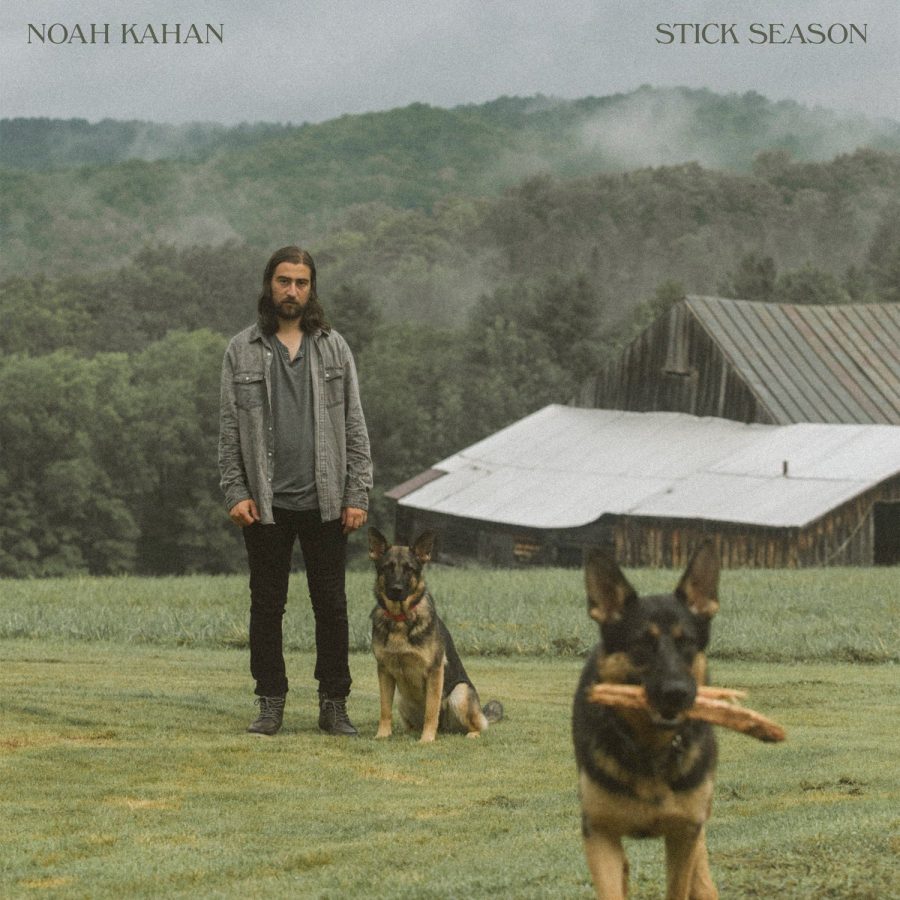Noah Kahan’s “Stick Season”: An Ode to New England
The strength in Noah Kahan’s “Stick Season” is his ability to cultivate comfort among the sadness. (Courtesy of Twitter)
Few albums explore the specific experience of growing up in New England with all its comfort and cold. In his latest album, Vermont and New Hampshire native Noah Kahan perfectly captures this paradox. “Stick Season” is the love-hate letter to New England that we’ve been missing.
After the massive success of his title track over the summer, the rest of Kahan’s release doesn’t disappoint. The familiar folk-pop sound and skillful lyricism of the single “Stick Season” endure in each song. As I listened, these trademark characteristics of Kahan’s music brought me into his ebb and flow. He moves smoothly between loathing and longing, upbeat and melancholy, observatory and introspective. The result is a harmonious album that I can’t seem to find fault with.
“Stick Season” addresses a variety of topics related to growing up and the idea of home. In tracks like “All My Love” and “Halloween,” Kahan beautifully reminisces on lost love. I noticed that each love song on the album approaches the subject with a different tone. Some are more haunting, while others are more playful. This is a great example of how Kahan plays with paradoxes throughout the album. Other songs, such as “New Perspective,” reflect Kahan’s desire to stop his loved ones from moving on with their lives. “Stick Season” is full of brutally honest admissions like these. My personal favorite song, “Growing Sideways,” is the most introspective track on the album. Kahan opens up about his mental health struggles, which he has written about in the past. The closing song “The View Between Villages” truly encapsulates the contradictory nature of the album. It begins with Kahan’s quiet appreciation for his hometown and builds to a frenzied reminder of painful memories. While Kahan captures a wide range of experiences in the album, each song has the same nostalgic spirit.
As a Massachusetts native, I appreciated the relatable details sprinkled throughout the album. For example, the spirited anthem “Homesick” is full of references, such as the Boston Marathon and the painfully cold winters. In the chorus, Kahan jokingly shouts “I’m mean because I grew up in New England.” He often explores how our environments shape us in both positive and negative ways. I think New England is the perfect channel for considering this idea. It’s beautiful, but the weather is unpredictable. In a small Vermont town like the one that Kahan grew up in, there may be a tendency to feel trapped or limited, despite the staggering expanse of green mountains. New England is contradictory by nature. I’ve talked to friends from New England who connect with these ideas that Kahan so profoundly sings about in his album.
In a recent interview with the online magazine Songwriter Universe, Kahan says it best: “There’s this draw that I feel back to Vermont that never really leaves me. Even when I’m there I want to be out of there, and when I’m somewhere else I want to be back home.” But even those who didn’t grow up in New England can appreciate the nostalgic feel of Kahan’s music. Everyone can relate to returning to a place filled with memories. Everyone can relate to feeling stuck sometimes. Everyone can relate to homesickness, especially college students. If this all sounds a bit melancholy, it is. However, I think the strength of “Stick Season” is Kahan’s ability to create comfort in the sadness. There’s something reassuring in the way that he makes his personal experiences accessible to the average listener.
All in all, “Stick Season” is the perfect (no-skip) album to ring in the cold weather this year. I encourage everyone to put on their favorite sweaters, sit back, relax and enjoy.











































































































































































































